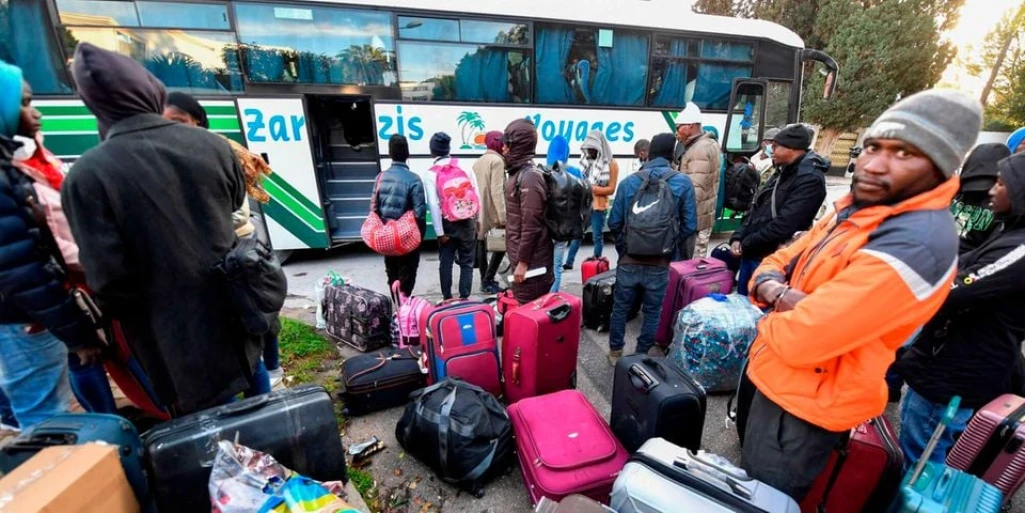
The World Bank is pausing talks over its future engagement with Tunisia following anti-immigrant comments made by the country’s president, Kais Saied, according to an internal message to staff seen by AFP.
In the message sent on Sunday evening, the bank’s outgoing President David Malpass said Saied’s tirade had triggered “racially motivated harassment and even violence,” and that the institution had postponed a planned meeting involving Tunisia until further notice.
“Given the situation, management has decided to pause the Country Partnership Framework and withdraw it from Board review,” said Malpass in the note to staff.
AFP understands that ongoing projects will continue and funded projects remain financed.
Hundreds of migrants have flown home from Tunisia, fearful of a wave of violence since the president’s remarks.
Last month, Saied ordered officials to take “urgent measures” to tackle irregular migration, claiming without evidence that “a criminal plot” was underway to change Tunisia’s demographic makeup.
He claimed that migrants were behind most crime in the North African country, fueling a spate of sackings, evictions and attacks.
‘Completely unacceptable’
“Public commentary that stokes discrimination, aggression, and racist violence is completely unacceptable,” said Malpass in the note to World Bank staff.
But he also noted that measures announced by the Tunisian government to protect and support migrants and refugees marked a “positive step,” adding that the bank would assess and monitor its impact carefully.
The African Union has previously expressed “deep shock and concern” at Saied’s remarks, and governments in sub-Saharan Africa have scrambled to bring home hundreds of frightened nationals who flocked to their embassies for help.
The United States is “deeply concerned” by President Saied’s remarks, State Department spokesman Ned Price said at a press briefing on Monday.
“These remarks are not in keeping with Tunisia’s long history of generosity and hosting and protecting refugees, asylum seekers and migrants,” he said.
“We urge Tunisian authorities to meet their obligations under international law to protect the rights of refugees, asylum seekers and migrants,” he added.
He also called on Tunisian authorities to facilitate the “safe, dignified and voluntary” return of migrants looking to return to their countries of origin.
Since the president’s speech on February 21, rights groups reported a spike in vigilante violence, including stabbings targeting African migrants.
“We condemn without reservation any and all statements that are xenophobic, that are racist, that are meant to increase racial hatred,” said Stephane Dujarric, a spokesman for UN Secretary-General Antonio Guterres, at a press briefing on Monday.
According to official figures, there are around 21,000 undocumented migrants from other parts of Africa in Tunisia, which is home to around 12 million people.
The embassies of Ivory Coast and Mali earlier provided emergency accommodation for dozens of their citizens evicted from their homes, including young children.
Citizens of other African countries whose countries have no diplomatic representation in Tunisia had meanwhile set up makeshift camps outside the Tunis offices of the International Organization for Migration.